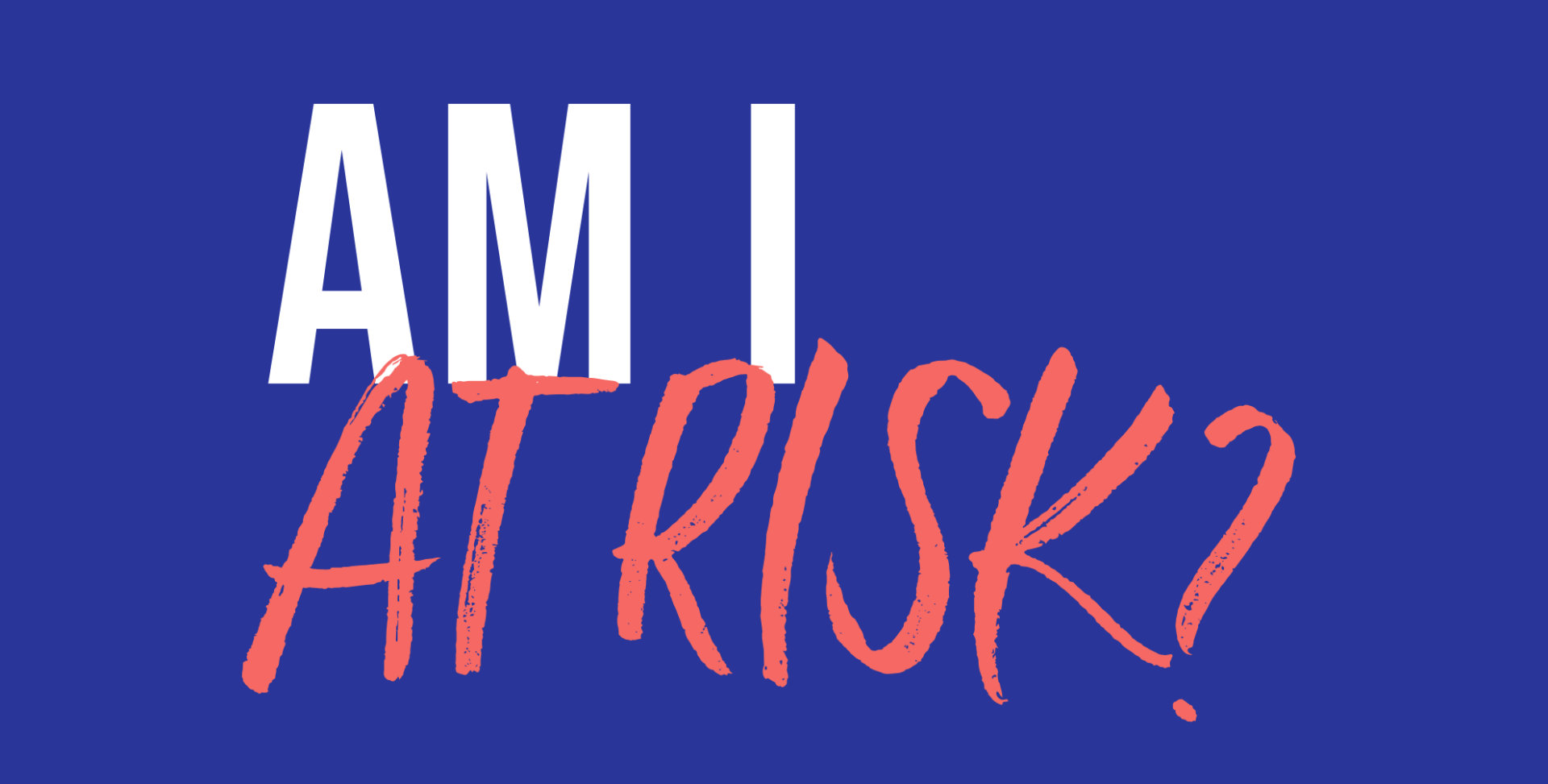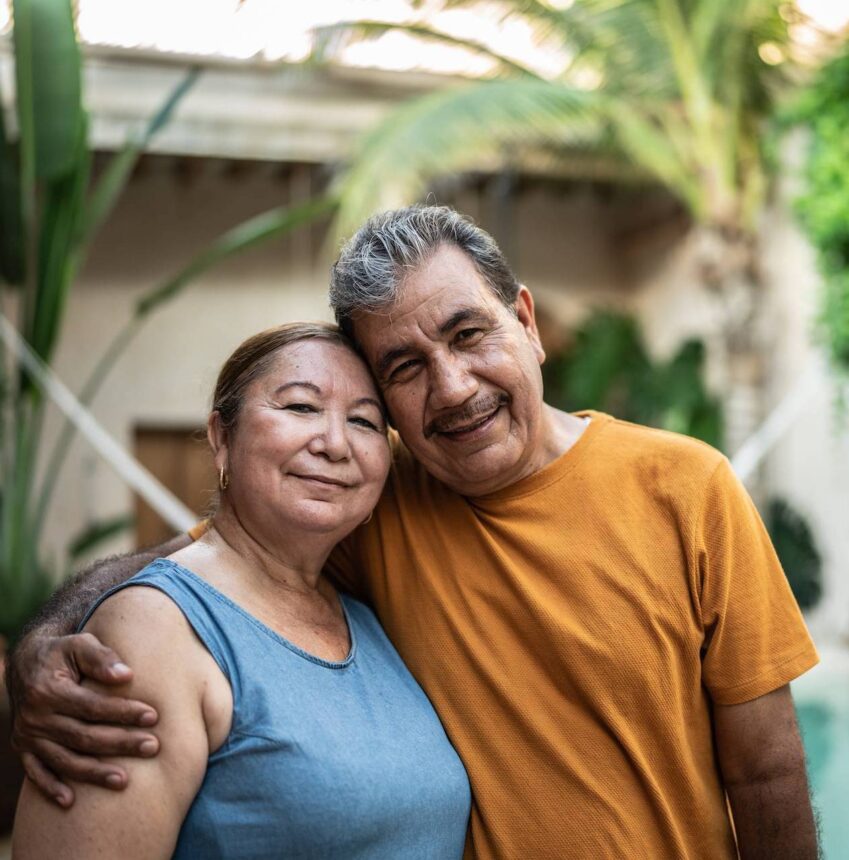
Millions of Americans are at
increased risk for severe COVID-19
Despite the success of vaccines in reducing severe illness and declining numbers of infections in many areas, COVID-19 remains a threat and some people are more vulnerable to severe illness from the virus.
There are treatment options available that can help reduce the severity of symptoms and the risk of hospitalization and death among people who are at high risk for severe COVID-19. Unfortunately, many of those who need COVID-19 treatments don’t know treatments are an option and aren’t getting them.
Millions of Americans who are at high risk of developing severe COVID-19 don’t know they are at risk. Millions more from vulnerable communities may not be receiving appropriate access to COVID-19 treatments, including antivirals.
Together, we can change this.
AM I AT RISK?
Age is the biggest risk factor, but your risk of severe COVID-19 increases if you have certain health conditions or are impacted by social factors.
Age is the strongest risk factor for severe COVID-19, according to the CDC. Risk for severe COVID-19 dramatically increases with age.
- Asthma
- Cancer
- Diabetes
- Disabilities
- Heart conditions
- Lung disease
- Kidney disease
- Obesity
- Mental health conditions
- Smoking (current and former)
- Substance use disorders
For a full list of conditions that qualify as high risk of developing severe COVID-19, visit the CDC website.
Many vulnerable communities may also be at greater risk of severe COVID-19 and are less likely to receive treatment. According to the CDC, if you are part of a racial and ethnic minority group, you could be nearly twice as likely to face serious complications from COVID-19.
In addition to other risk factors, people who are unvaccinated or not up-to-date on COVID-19 vaccinations are more likely to have severe COVID-19.

TREATMENT OPTIONS ARE AVAILABLE TO HELP PREVENT SEVERE COVID-19
While not a substitute for vaccination, safe and effective treatments for people at high risk of severe COVID-19 are available.
Many people who are at high risk of developing severe COVID-19 don’t know their risk. If you are 50 and over, have diabetes, cancer, mental health conditions, obesity, asthma, or a number of other health conditions, you are at greater risk of developing severe COVID-19.
If you have mild to moderate COVID-19 symptoms, you may be eligible for one of two antiviral treatment options available to help prevent severe COVID-19: oral antivirals and intravenous (IV) antivirals. Both options must begin within days of your first COVID-19 symptoms.
- Oral antivirals are pills that can be taken by mouth and can be obtained from a pharmacy. Treatment must begin within the first five days.
- IV antivirals must be administered at a hospital or other healthcare setting and must begin within the first seven days.

ANTIVIRAL TREATMENTS FAQ
The FDA has granted full approval of one and emergency use authorization for the second of two oral antivirals used to treat COVID-19 in people who are infected with the virus and are at high risk of developing severe COVID-19. The FDA has also approved an IV antiviral for the treatment of people infected with the virus and are at high risk of developing severe COVID-19. Learn more below.
How effective are oral antivirals?
Oral antivirals are most effective when they are started as soon as possible after being infected — within the first five days of feeling any symptoms.
Clinical trials have shown oral antivirals reducing the risk of hospitalization or death by as much as 88% (NIH).
In the United States, there was a 51% lower hospitalization rate among users compared to non-users (CDC).
Do I need to test positive to be prescribed COVID-19 oral antivirals?
FDA has indicated that a positive test is not required, but people should consult with their healthcare provider.
How can I get oral antivirals?
Oral antivirals are available with a prescription from a health care provider, and in many cases, from a state-licensed pharmacist.
Both oral antiviral treatments have transitioned from U.S. government distribution to the commercial market and traditional health care coverage. Cost and coverage options vary depending on the drug, and there are patient assistance programs, co-pay programs, and other plans to help ensure COVID-19 treatments will continue to be available at no or low cost for most individuals.
For Paxlovid:
Those who receive care from federal entities, including Health Resources and Services Administration (HRSA)-supported health centers, Indian Health Service, Veterans Health Administration, and others will have continued access to free antiviral treatments.
Those who have Medicare or Medicaid coverage and the uninsured without prescription drug coverage can access Paxlovid through PAXCESS, which includes the U.S. Government’s Patient Assistance Program operated by Pfizer.
For those with private (commercial) insurance, the PAXCESS program offers a co-pay savings program.
- PAXCESS Patient Support Program
- 1-877-219-7225
For Lagevrio:
Through the Merck Patient Assistance Program (Merck Helps), eligible individuals, primarily the uninsured, who without assistance could not otherwise afford the medicines, can receive Lagevrio free of charge. Individuals who don’t meet the insurance criteria may still qualify for this program under certain circumstances and if their income meets the program criteria.
- MerckHelps – Lagevrio
- 1-800-727-5400
Do antivirals cause COVID-19 rebound?
Rebound – the return of mild COVID-19 symptoms – can happen whether you use antiviral treatments or not. Evidence has not shown that antivirals increase the likelihood of rebound. COVID-19 antiviral treatments can help prevent severe illness, hospitalization, and death – and the benefits are much greater than the risks of rebound.
How does an IV antiviral differ from oral antivirals?
An IV antiviral is administered as an intravenous (IV) infusion once a day for a period of three days at a hospital or other healthcare setting. Treatment must start within seven days of symptom onset. Talk to your healthcare provider to determine the best treatment plan for you.
)
